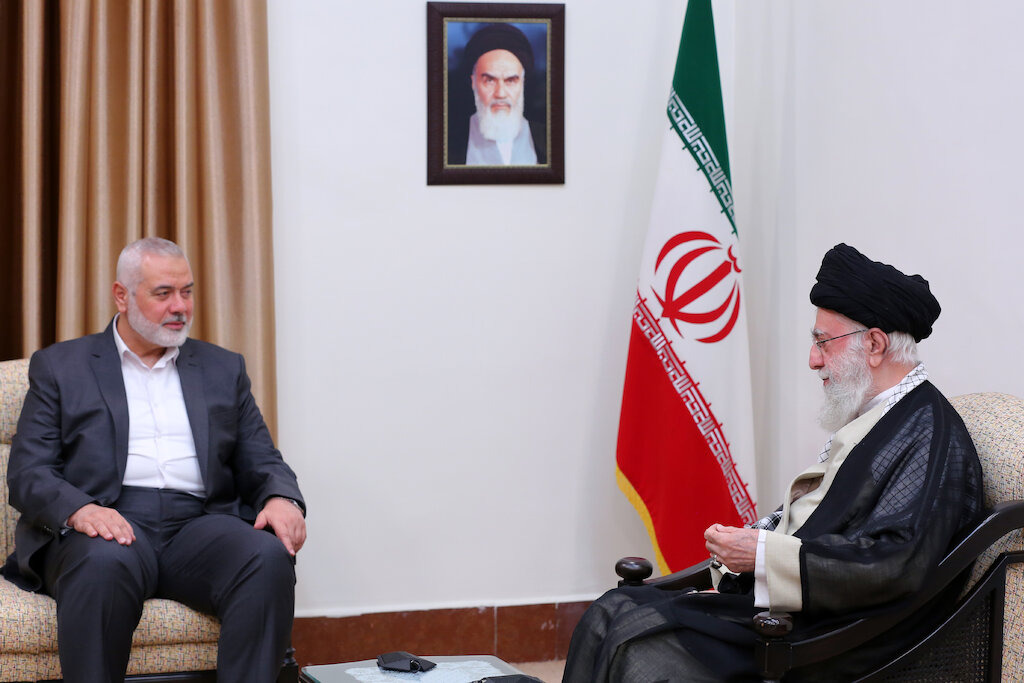
While Russian warships, including a nuclear submarine, this week docked in Cuba, and with China building a major deep-water port in Peru that could serve the Chinese military, the US administration is pressuring only Israel to allow the Iran-backed terrorist group Hamas to win the war it launched against Israel on October 7.
When an ally is attacked by terrorists, the fundamental principle of an alliance dictates that the victim must be provided unwavering support to defeat the terrorists and dismantle the terror infrastructure completely, ensuring that the terrorists cannot regroup to launch further attacks.
Without such a commitment, it, the trust between allies erodes, and terrorists are emboldened. The situation has become particularly dire for Israel, which has been facing brutal attacks on multiple fronts. Despite these assaults, the Biden Administration has not only failed consistently to support Israel after it was invaded on October 7, 2023, accompanied by thousands of missiles, but has also pressed for policies favoring Hamas and its sponsors and enablers, Qatar and Iran.
After yet another of Iran's other proxy terrorist militias, Hezbollah, not only joined Hamas in attacking Israel but has kept escalating its attacks, the response from the Biden administration has been to warn -- not Hezbollah or Iran against warmongering – but Israel. Instead of supporting Israel's right to defend itself against coordinated and sustained attacks, the Biden administration's public wavering (such as here, here and here) suggests a pro-terrorist shift in US policy away from Israel. This shift represents a betrayal that leaves Israel in the no-win position of either rejecting US proposals, or allowing Hezbollah, Hamas, the Houthis and other Iranian-backed terrorist groups to keep trying to advance their goal of ultimately destroying Israel.
When Iran itself, and not a terrorist proxy, launched an unprecedented missile and drone attack against Israel from Iranian soil on April 13, 2024, the assault was an act of war.
The response from the Biden administration was again to warn Israel not to retaliate, defend itself or fight back. The administration went even further and suggested that Israel should consider the situation a "win-win" scenario, simply because Iran's barrage of more than 300 ballistic missiles, cruise missile and attack drones at a country smaller than New Jersey did not inflict significant damage. By suggesting that Israel should be content that the attack did not cause major harm, and by withholding essential military support, the administration is minimizing the seriousness of the threat posed by Iran's actions. The result had been that Iran's proxy Hezbollah in Lebanon is now engaged in unremittingly raining down rockets, attack drones and guided missiles throughout Israel's north. The Biden administration might not even have asked the Iranian regime to order its other terrorist proxy Hezbollah to stop.
Asking Israel to do nothing against Hamas and Hezbollah after eight months of escalating aggression is akin to asking the United States, after the 9/11 attacks, to leave Al Qaeda untouched and allow it to remain in power. Would the U.S. have listened to such a recommendation?
Meanwhile, there has evidently been no pressure put on Qatar or Iran to lift a finger to stop the Gaza war. And Hamas official Ghazi Hamad disclosed last week that Egypt and Qatar have exerted no pressure on Hamas whatsoever to accept Biden's proposed ceasefire, and that media reports about threats to expel Hamas leaders from Qatar are false.
On one hand, the Biden administration keeps warning Israel against defending itself, while on the other, it keeps waiving sanctions, thereby providing the Iranian regime with billions of dollars that fund, arm, and sponsor terrorist organizations including Hamas, Hezbollah, Palestinian Islamic Jihad and the Houthis -- all of which are committed to eradicating Israel.
Worse, this US largesse is enabling the Iranian regime to race toward completing its nuclear weapons program.
The Biden administration has also been massively strengthening the capacity of Iran and its proxies to carry out military operations against Israel, block shipping in the Red Sea and attack even US troops at least 170 times in the region. Three US servicemembers were killed, and at least 183 others wounded, including 131 with serious brain injuries.
Israel is being advised to exercise restraint and not retaliate while facing escalating threats from the very enemies bolstered by the people asking them to exercise restraint.
This policy muddle raises serious questions about the reliability of the United States as a steadfast ally. By not taking decisive action to support Israel, the administration is also sending a warning of inconsistency and weakness to all prospective allies, and encouraging them to rely on America's adversaries instead.
The consequences of this approach are unfortunately far-reaching. They affect not only the immediate security of Israel but also the credibility of the United States on the global stage, the broader stability of the region, and the very preservation of the US, which is currently being encircled by enemies.
The "ring of fire" strategy -- apparently expanded to the hostile axis of Russia, China and Iran -- is now coiling around the US, as well as installing potential fighters and saboteurs "inside the gates."
Allies, such as Israel and Ukraine, depend on military assurance in times of crisis -- not airy promises before and after them -- to know they will not be left to stand alone.
The financial resources that Iran gains from waived sanctions, and channels into furthering its agenda with Qatar, Hamas and Hezbollah, simply increase their ability to conduct aggressive actions against Israel and the US, destabilize the region -- and with its new Russian and Communist Chinese axis -- seriously jeopardize the Free World.
Dr. Majid Rafizadeh is a business strategist and advisor, Harvard-educated scholar, political scientist, board member of Harvard International Review, and president of the International American Council on the Middle East. He has authored several books on Islam and US Foreign Policy. He can be reached at Dr.Rafizadeh@Post.Harvard.Edu


